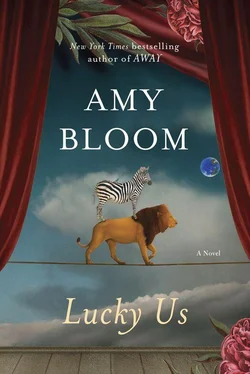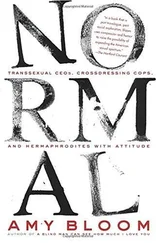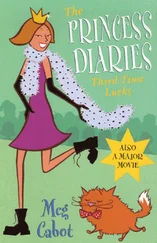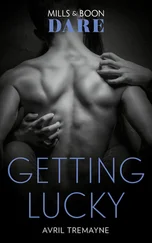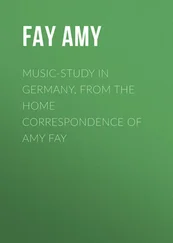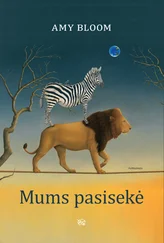“I have to get Danny,” I said. “Do you think the school told the kids?”
Francisco said, “You tell Danny the president was a great man. You make sure, no matter what some lying, Republican schoolteacher pendejo tells him, that your little boy knows we won’t see another like that man. You tell him.”
“We all have to go home,” Bea said, and she turned out the lights.
People were driving all over the road, and on the shoulders. I passed men driving toward the city with tears streaming down their faces. I could see the people on the buses above me, white handkerchiefs pressed against dark faces. I picked Danny up and he was shaking. I told him what Francisco told me to say and when we got home, the two of us got into my bed and listened to the radio all night. I missed my sister, then.
OUR OWN FUTURE, BY which I mean mine and Danny’s, was not so clear and, where clear, not so rosy. We’d moved. The Torellis were as good to us as anyone could ask. I certainly hope that if I found myself with a lot of money, four children, and a big house on the water and my butler fell ill and my cook died and my kids’ governess hightailed it to England, that I would be as generous and patient with the survivors as the Torellis were. But I doubt it. Mrs. Torelli said we could take the living room couch and the hutch and the pots and pans and she handed me an envelope with two months’ rent for a small house on Old Tree Lane. She’d found it through the new maid’s sister and put a deposit down before I ever saw it, which was reasonable. I was eighteen and taking care of a sick old man and an eight- or nine-year-old boy I hardly knew, making my living as a fortune-teller in East Brooklyn, and I wasn’t likely to say, No, thank you, not quite, let’s keep looking. Mrs. Torelli said good-bye to us pretty much the way she’d said hello — kind and a little surprised to find herself in our company. Mr. Torelli had had plenty of experience with damaged goods and the wishes and hopes of all his scheming cousins, and my guess is that he knew us by the end. He stood in the fork of the driveway and watched Ozzie Patterson carry my father like a pile of firewood and plant him head up and feet down in the back of his car. I carried down carton after carton, like an ox on a muddy hill, and when I was about to go upstairs for a final sweep, Mr. Torelli gave me a fifty-dollar bill.
“My mother died when I was eight,” he said. “Good luck to you.”
I packed Danny into the car with his Tinkertoys and Raggedy Andy and the pilot’s jacket Reenie had given him for his last birthday. I stood in the big, curving driveway and wished what I always wished, that I could turn left and go to the Torellis’, instead of taking a quick right to the carriage house. Clara waited for us at the new house, sipping a cold drink at the kitchen table and supervising Ozzie’s idiot cousin (her words, not mine) in unloading our beds from the Sears truck, a gift from Ozzie Patterson. The Sears driver was Negro. Our next-door neighbors on both sides were Negro too. The old man across the street was white and sat on his porch, smoking and watching. Little Ruthie Post, Danny’s dearest friend, who lived only a couple of blocks away, sauntered past (always as if she’d been touring her estate and just happened to pass our cottage) and invited Danny to walk her to the park, so he missed the tearful shifting and unloading of my father, of our few furnishings, of Reenie’s clothes, which were too big for me, and of Iris’s clothes, which I refused to send her.
OZZIE CARRIED EDGAR TO the attic and tucked him in, and when he came down, he washed up and offered Clara his arm. They left. I cleaned hard for the rest of the day and then gave up for a good, long time. I made pancakes for me and Danny and soft scrambled eggs for my father. I sat with Danny while he prayed to Saint Joseph of Cupertino and he let me kiss him goodnight, in his new bedroom, with the new bed and airplane-shaped rug, courtesy of Ozzie Patterson and his devotion to Clara.
I went back to the attic to sit by my father. His brain tumor was killing him. He wouldn’t get better and he wouldn’t die. People say that even if the dying seem not to hear you, they do. After a few nights at the new house, while changing a bedpan, I told him, “It’s all right — you can let go.” My father must have heard this as a call to arms. He rallied. He started opening his eyes for a few hours every day and muttering in Yiddish. Clara said we (meaning I) should get someone who spoke Yiddish to encourage Edgar, and I did. I found Bernie Smedresman of Bernard’s Fine Dry Cleaning. Mr. Smedresman was short, round, unstoppably kind. He was a bowling ball of good will. He brought the bagels and accoutrements, and sometimes Clara and Ozzie stopped by for bagels and lox. Mr. Smedresman brought herring in cream sauce, but only Ozzie tried that.
Falling in love with Ozzie Patterson didn’t stop Clara from directing my father’s care. She supervised what I cooked for him and when I fed him and she made it clear that I would now be giving him his sponge baths, not her. And I thanked her every day, just for showing up. Twenty minutes after my father died, she’d be gone, in a puff of smoke and a shimmer of silk, and I didn’t blame her. She came most mornings to make herself a cup of coffee, kiss my father on the forehead, sing a few songs to him, and come downstairs to smoke a couple of cigarettes and laugh at me. What a mess, she’d say. A baby with a baby. She’d poke Danny in the back, telling him to stand up straight and be polite, telling him no girl wanted a mealy-mouthed, hunchbacked boyfriend. She’d hand him a comic book and me her red lipstick. Fix yourself up and eat a decent meal, she said. God knows, the way you look now, you got to get up twice to cast a shadow.
THE WAR ENDED. THE blackout drills were over and the streetlights came on. We hadn’t ever kept the garden hose, metal buckets, and long-handled shovel we were supposed to have at our house. I didn’t have anything more than a broom, a sponge, and a box of borax. We didn’t even have a ladder, and when Danny threw a ball on the roof, I had to climb past my father, out the attic window, and get it while Danny told me to be careful. The Victory parade went up Middle Neck Road, from All Saints’ Church to the green, on January 12, just like the big one in the city. We had two drum majors leading the band from the Merchant Marine Academy, and high school girls handing out flowers and flags, and a jeep covered in red roses, carrying three soldiers, waving stoically. The ministers and a priest and a rabbi stood in the gazebo on the lawn behind the library and read the names of our dead. Danny and I cheered for the living and cried for the dead, like everyone else. I hoped that Gus was in the first category, but I doubted it.
If you’d asked me what I understood about fortune-telling, I would have told you that no one came to see someone like me because they were happy. I would have said, People come because they are so frightened, they wake up in a sweat. They look into the well of their true selves, and the consequences of being who they are, and they’re horrified. They run to my little table to have me say that what they see is not what will happen.
The end of the war turned everything upside down. (Maybe not for the Germans and the Japanese, but they weren’t coming to my little table.) People were getting married and having babies and buying houses, going to school and getting divorced, all double-time. Aside from the two grieving Gold Star Mothers who came every week, to see if I could give them a reason to live, the women at La Bella Donna came to ask me about the future, not the past, and they were not taking no for an answer. A friend of Mrs. Russo’s came by to say that she was thinking of moving back to Pennsylvania without her husband. I’ve got a farmhouse there, she said. And friends. What do the cards say about that? One woman came to me, a new bride. All she wanted to hear was how many boys, how many girls, and would she be pregnant by Christmas. Two of each, I said, and absolutely.
Читать дальше
